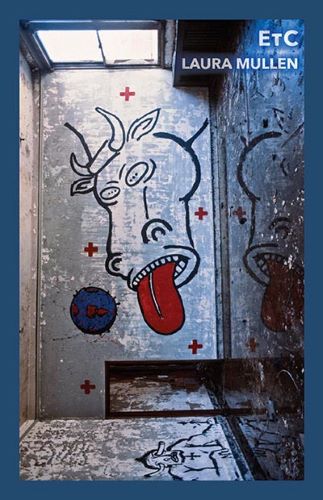Lalitamba – 2009
Issue 3
2009
Annual
Alan Peters
The front page of Lalitamba states, “During our travels was born the idea for a literary magazine that would uplift the spirit.” Lalitamba presents within its rich 250 pages a variety of poetry, essays and short fiction that explore faith and spirituality, with writing that is rooted in everything from Buddhism to Christianity. As would be appropriate for a spiritual magazine, Lalitamba opens with a section titled, “Letters and Prayers.” Although short, these are the perhaps the heaviest pieces of writing in the issue. They reflect a profound sense of suffering and loss that would speak to the kinds of readers most drawn to this kind of magazine.
The front page of Lalitamba states, “During our travels was born the idea for a literary magazine that would uplift the spirit.” Lalitamba presents within its rich 250 pages a variety of poetry, essays and short fiction that explore faith and spirituality, with writing that is rooted in everything from Buddhism to Christianity. As would be appropriate for a spiritual magazine, Lalitamba opens with a section titled, “Letters and Prayers.” Although short, these are the perhaps the heaviest pieces of writing in the issue. They reflect a profound sense of suffering and loss that would speak to the kinds of readers most drawn to this kind of magazine.
After presenting these prayers, the magazine moves into the essays, poems and short stories. The pieces are sometimes not even separated onto the next page, which gives the impression of a free-flowing, multi-layered narrative. Each poem is strengthened by the writing that came before it and leads in to the piece that comes after. Because of the structure, I was able to read quickly through the magazine; I never found a moment to stop.
A wide variety of topics are covered, and each one brings a message of hope or a feeling of renewal. A prime example of this is J. Roman’s “My Best Friend in Jail is Gay,” about a Puerto Rican inmate who befriends and consequently realizes the inner beauty of Vanessa, a cross-dressing, gay inmate. The story ends with the advice, “See people for what they are. Human.” The story is written in an informal first-person voice which really works to help connect the reader with the narrator. Short sentences produce an elegant simplicity in the story.
Barry Ballard’s poems, “Outside the Herd” and “Waking,” present an Emersonian view of life: Don’t blindly follow others, and appreciate the small things. Lines such as “reveling in my rebellion” and “I swerve at the poison of complacency” emphasize the individualistic message of these poems. Bobby Minkoff’s “My Brother the Beggar” is a modest poem about the difference, or lack thereof, between a beggar and a man with money. Although the poem isn’t as strong in its technical merits, it is still a moral tale that fits perfectly in the context of this journal.
Also featured in this issue is an interview with Tim Bascom, author of Chameleon Days, about his experience as an American child growing up in Ethiopia with his missionary parents. This is a great interview for the journal – not only is Mr. Bascom’s life fascinating, but it is a firsthand account of the blending (and in some cases collision) of two cultures. Bascom’s story shows how one’s life can be radically different depending on the culture he grows up in.
Lalitamba stresses community, spirituality, and hope, and will leave a positive, invigorating feeling in a reader’s soul. The back of the issue says, “May all beings be happy and free from suffering. May we all live in peace together.” Through the sublime art of writing, Lalitamba makes its contribution to the world in order to promote happiness and alleviate suffering. I, for one, felt a little more at peace when I finished reading.
[www.lalitamba.org/]




